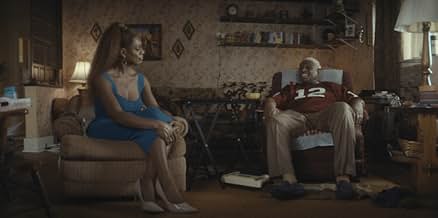If you can look past the frequent gender affirmations, as well as the repetitive use of terms like "she," "her," "daughter," and "woman," along with Laverne's character often behaving like a cisgender teenage girl, this sitcom is generally lighthearted and entertaining.
The show can feel somewhat cringeworthy and unrealistic, particularly when Laverne, towering at over six feet in dresses and heels with a full face of makeup, seems fixated on reliving her childhood as a "girl." This feels odd, considering her character appears to be in her 40s. The sitcom seems to be trying hard to fit into the mold of a typical white woman sitcom, rather than exploring the complexity of a black man returning to Mobile, Alabama as a black trans woman in a comedic way.
That being said, the show still offers enjoyable moments, especially in its heartwarming portrayal of a father's unconditional love and acceptance.
I do wish the show had delved deeper into why Des ran away and provided a more realistic, nuanced conversation between Des and her father about her transition.




































